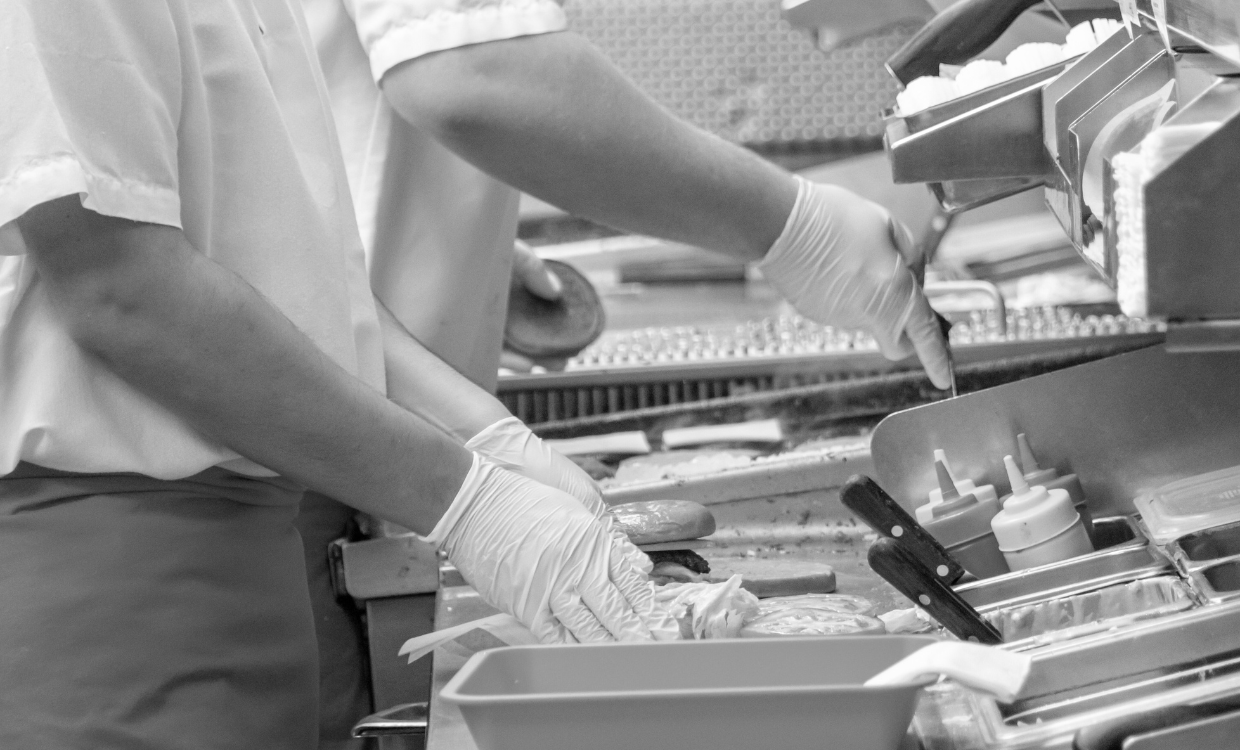The pros and cons of franchising in 2024

Franchising is a term that gets tossed around a lot. Some of the most common questions are, what’s the difference between a franchise and a chain? What is franchising exactly, and why would a company decide to become a franchise? What’s in it for the franchisee?
In this article, we cover those topics and more; specifically, you’ll learn:
- The pros and cons of franchising
- How much franchising really costs
- The challenges of traditional franchising
- An alternative to the traditional franchising model
We’ll start with a basic discussion of what franchising is – and isn’t.
What is franchising?
Franchising is a method of distributing products (such as restaurant food or physical goods) or services (such as home improvement, lawn care, or personal training) that involves two parties: (1) a franchisor, who establishes a brand and a business system; and (2) a franchisee, who pays the franchisor(s) an initial fee and ongoing royalty fees for the right to do business under the franchisor’s brand and business system.
Technically, the contract between the franchisor and the franchisee is the “franchise.” That term, however, is usually used to refer to the business itself that’s being operated by the franchisee. Here is an example:
Taco Bell, whose parent company is YUM! Brands, is one of the leading Mexican restaurant franchises and in 2022 was ranked the highest-grossing franchise in the United States. With more than 7,500 locations operating worldwide, Taco Bell is known for its highly successful franchise model. Although its corporate headquarters governs the business’s brand and systems of operations, most Taco Bell locations are owned and operated by franchisees.
In comparison, Starbucks, which is also a top-rated company with locations throughout the world, is not a franchise. Although Starbucks is a chain, all locations are corporately owned and operated. “We don’t franchise our stores,” Starbucks CEO Howard Schultz said in a 2016 interview. “So much of what we’ve succeeded in is based on the values and culture of the company, and I never believed we could do that in the franchise system where the people weren’t working for the company.” Those who want to operate a Starbucks location must be full-time employees of Starbucks corporate.
How much does franchising cost?
Franchising costs are usually referred to as an “initial investment” that is composed of two variables: the costs of starting the business and the franchising fee.
The costs of starting the business are variable but include costs for the physical location, initial inventory and equipment, salary for initial employees (if any), and other miscellaneous expenses. Startup costs may be as low as a few thousand dollars or more than $1 million.
The franchising fee is what the franchisee pays to the franchise’s headquarters to do business under their brand and with their established business system.
The franchise disclosure document (FDD) must provide aspiring franchisees with the typical initial investment and franchising fee required.
Benefits of franchising
Although becoming a franchisee is expensive, it comes with numerous benefits that can outweigh the financial costs and make franchises an appealing investment.
Lower risk
It’s no secret that starting a new business from scratch is risky. But by leveraging a franchise’s preexisting brand and business systems, franchisees can minimize that risk. Keep in mind that the franchise exists because it has proved to be a successful business and its franchisees have had success replicating that business in new locations. That means it’s a market-tested business model.
Additionally, franchisees don’t have to worry about the rough startup period experienced by new business owners. With a recognizable, proven brand, franchisees will undoubtedly have an easier first few months of operations than a new business, which would be spending that time building goodwill and recognition with the local population.
Legal protections
Franchising is a regulated activity and all franchises are required to create franchise disclosure documents (FDDs) that follow a strict format.
Likewise, the slew of laws related to franchising may be able to protect franchisees in the event of legal trouble. As always, it is best practice to consult with a lawyer who specializes in franchising before making any legal decisions.
Lower volatility
When franchisees buy into a franchise, they (ideally) do so after a period of due diligence into its financial situation and operations stability. Although their findings during this research period can vary significantly, the data will likely show that franchises have much lower chances of failure than new businesses.
As such, franchising is often a relatively safer, less volatile way to start and operate a business.
Inflation hedge/equity appreciation
Owning a franchise means having a plan to rise with inflation – simply adjust your prices to keep up. Like all investments, this strategy is not without risk; in an ideal scenario, however, it helps keep the franchisee’s income better adjusted to the rising costs of goods and services than a typical year-on-year salary bump from a full-time job.
Return potential
Of course, franchising is a big financial investment – but it also has a big return on that investment.
While franchises are incredibly diverse and span nearly every industry imaginable, common sense dictates that franchises wouldn’t be popular or successful – or even exist at all – if people didn’t make back the money they invested and also made a profit.
Challenges of (traditional) franchising
Although the business model has many benefits, franchising is not all sunshine and rainbows. Like all alternative assets (and actually, any business venture), it comes with risks. There are some challenges associated with franchising that new franchisees must either overcome or come to accept.
Higher fees and costs
Franchises often come with high startup costs, including franchise fees that can be tens of thousands of dollars – or more. Some franchises require over a million in startup capital, which for many aspiring franchisees means securing a business loan. So, along with paying royalties to the franchiser and working to keep the business solvent, add “make hefty loan payments” to the list of obligations.
Illiquidity/investment time horizon
The time for a franchisee to make back their initial investment money might be years, and with an uncertain economy that risk might be too great for some to take.
Likewise, selling or liquidating a franchise can create a difficult web of legal and financial questions and ramifications, especially if the franchisee has yet to pay off the loan(s) secured as part of the initial investment. Franchising can be profitable, but again, it is not risk-free.
Time commitment
While some franchises allow franchisees to hire managers who run most of the business’s operations, others require the franchisee to be the primary operator – and in some cases, employee – of the franchise. One extreme example is Chick-fil-A, whose franchisees often work 60 hours a week as owner-operators, managers, and restaurateurs.
Becoming a franchisee is a huge time commitment. Because of that, it may not be the best option for those who seek more passive, hands-off business endeavors.
But that does not mean the lucrative space of franchises is entirely out of reach.
Passive franchise investment with FranShares
There is another option: fractional franchise investing with FranShares.
Here’s how it works:
Our approach offers high earning potential and diversification in a completely passive investment model, using shares of franchises as the investment. We give both retail and accredited investors the opportunity to access all the benefits of franchising with low initial capital outlay.
You don’t need to be a full-time manager of your Franshares investments, and you don’t need to worry about a large initial investment to get started.
To learn more about FranShares and this unique opportunity, sign up for our platform on our website.


